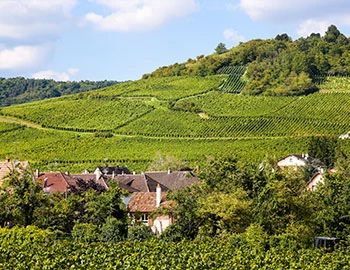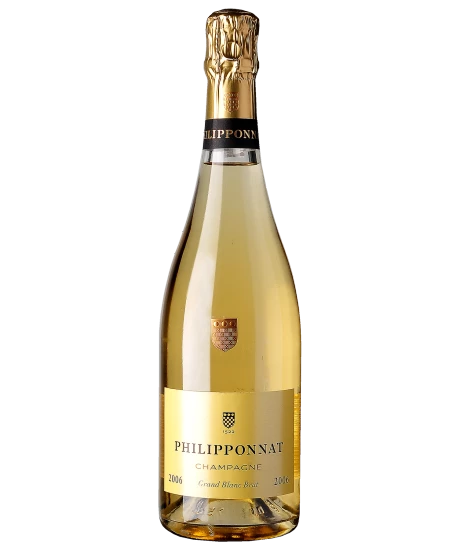
Philipponnat Grand Blanc Brut Millésimé 2015
AOC Champagne, Blanc de blancs, 750 ml

| Grape variety: | Chardonnay |
| Producer: | Champagne Philipponnat |
| Origin: | France / Champagne |
| Other vintages: |
Description
100% Chardonnay from the Côte des Blancs First press juice from exclusively Premier and Grand Cru plots. An elegant sparklingwine that preserves a balance between freshness, floral aromas and vinosity. Extra brut dosage (4.25 g/litre) to preserve its original purity and distinction. Aged for six to eight years to develop greater complexity and highlight the secondary and tertiary aromas which are the hallmark of extended lees aging in the bottle, also referred to as second fermentation or "prise de mousse". Open, expressive nose in which delicate aromas of white flowers mingle with with notes of bergamot. Fresh and expressive, with citrus notes again in evidence along with tropical flavours of passion fruit. The finish is mineral and elegant.
Celebrate the Art of Sabring!
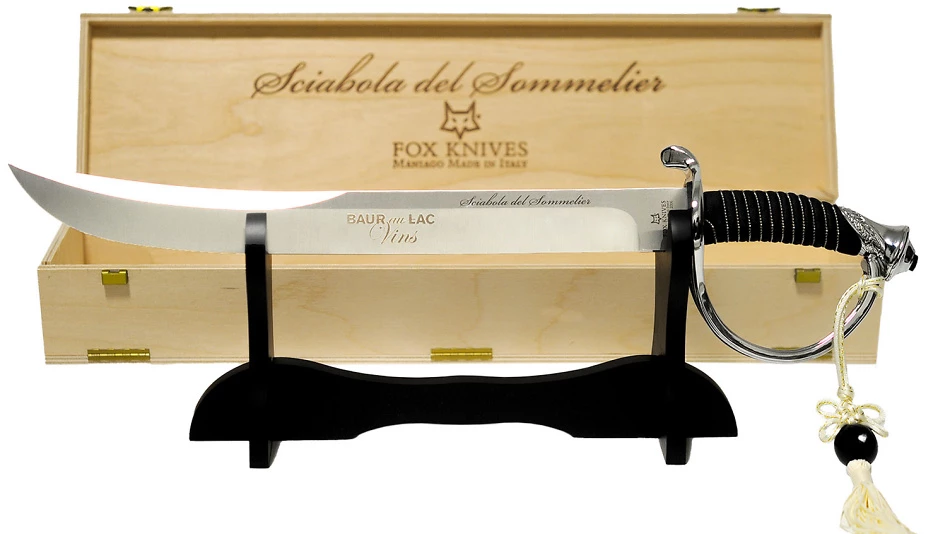
With its elegant design, this champagne sabre is not only an impressive eye-catcher at any celebration and an indispensable tool for stylish sabering, but also the perfect gift for all passionate sparkling wine lovers.
Attributes
| Origin: | France / Champagne |
| Grape variety: | Chardonnay |
| Ripening potential: | 8 to 15 years |
| Drinking temperature: | 9 to 11 °C |
| Food Pairing: | Apéro riche, Oysters, Baked egli fillets with tartare sauce, Sushi, Sashimi, Ceviche, Goat's cheese |
| Vinification: | bottle fermentation |
| Harvest: | hand-picking |
| Maturation: | on the yeast |
| Maturation duration: | 96 months |
| Volume: | 12.5 % |
| Note: | Contains sulphites |
Champagne Philipponnat
Journeying across Champagne you will inevitably come across familiar sounding names. Grand names behind which often hide grand houses that carry on their business at the global level.
It's a bit different with Charles Philipponnat. His champagne isn't well known to everyone, but it is one of the most exclusive. It was in the 17th century that the Philipponnat family moved to Mareuil-sur-AŸ in the heart of Champagne. In 1910 Pierre and Auguste Philipponnat bought a splendid winery carved 20 metres deep into the chalk bed. And today Charles Philipponnat welcomes guests into 'his' stately home with the finesse, charm and hospitality that characterise it.
Not far away at the edge of the village is the Clos des Goisses, the steepest slope in the area, facing due south and, what's more, the only 'Clos' in the whole of Champagne. Those 5.5 exceptional hectares grow mainly Pinot Noir and Chardonnay, which give rise to a unique vintage champagne. Production is limited, but that does not prevent it from being a worldwide success. Indeed, this champagne enjoys a top tier reputation at the great tables of the world. And the Charles Philipponnat name carries across equally well to all the other house styles, be it the Royal Reserve, full of character, the elegant rosé or the very fine blanc de blancs.
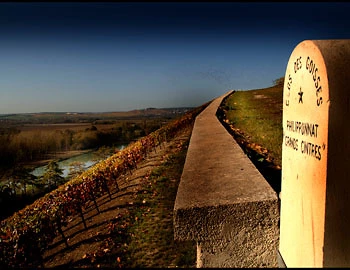
Chardonnay
King or beggar?
Hardly any variety of vine shows such a broad spectrum of quality as the Chardonnay. Its wines range from faceless neutrality to breath-taking class. It is an extremely low-maintenance vine, which explains why it is grown around the world – even in places where it probably should not be. The aromas of the Chardonnay variety are not very pronounced: a bit of green apple, a little hazelnut; in warmer latitudes, also melon and exotic fruits. The wines are often defined by maturing in casks. They develop more or less subtle notes of butter, toasted bread and vanilla. The grapes achieve their highest expression in their region of origin, Burgundy. Its heart beats in the Côte de Beaune: one might think of the plant growth of Meursault or Puligny-Montrachet. With their finesse and complexity, they can survive for decades. Chardonnay also achieves first class in some Blanc-de-Blancs champagnes. It additionally yields great wines in the Burgundian Chablis, and increasingly in Australia and Chile. A simple rule of thumb for pairing with food: When butter and cream are involved, you cannot go wrong with Chardonnay.
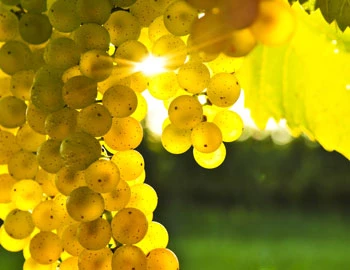
France
France – Philosophy in a bottle
According to French philosophy, wine should be an expression of the soil and climate. They use the word “terroir” to describe this. Terroir makes every wine different, and many especially good. French wine is regarded worldwide as an expression of cultural perfection. The French believe that humans are responsible for the quality of the berries, the vine variety for their character, and nature for the quantity. This philosophy can be expressed succinctly as: “the truth is the vineyard, not the man.”
